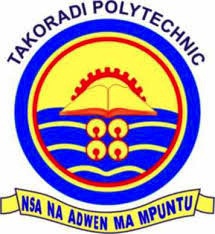
The Governing Council of the Takoradi Polytechnic, last Friday, met the entire leadership of the Students Representative Council (SRC) to address a strongly-worded petition the students had sent to them.
The petition, which is addressed to the Chairman of the Governing Council, Mr. J. E. Ackah, and dated May 15, 2015, expressed worry over the failure of the management of the school to provide certain services to the students, for which they had been billed.
Information available to The Chronicle indicates that the Acting Rector of the school, Mr. Emanuel Okumi-Andoh, on behalf of the Governing Council, met the entire SRC body on Friday, but the meeting ended inconclusive.
The petition, which was signed by the SRC president, Mr. Richard Ziemah, said the SRC, prior to the commencement of the 2014/2015 year, sat with the management of the Polytechnic to negotiate with respect to the amount of school fees to be paid.
According to the petition, though all parties at the meeting were aware and concerned about the hard economic conditions, the arguments put forward by the management was that the various components of the school fees should be increased in order not to only accelerate development of the school, but also to ensure quality delivery of academic work.
To that end, the SRC agreed and paid the said school fees in addition to other services billed the students. However, the SRC says its finds it more disturbing that barely a month to the end of 2014/2015 academic year, certain services and infrastructure for which students were made to pay for have still not been provided.
The SRC added that it came to its knowledge about the non-provision of the services for which students had paid for, following persistent complaints received from them.
That, according to the petition, compelled the SRC office to cause what they termed a ‘fact finding mission’ at the various departments to ascertain the truthfulness’ or otherwise of the students complaints and agitations. “Our findings have unraveled a very revealing and worrying situation which doesn’t augur well for smooth academic work,” the petition said.
According to the SRC, students were tasked to pay an amount ranging from GH¢85 to GH¢240 as contributions towards their day-to-day practical work for the 2014/2015 academic year. Unfortunately, most departments have not benefited from these contributions, even though the academic year was virtually coming to an end.
The petition went to name the departments as Graphics, Textiles, Civil Engineering, Building Technology, Electrical Engineering and Mechanical Engineering as those which had not received their practical materials since the beginning of the academic year to date.
The students, according to the petition, use their personal funds to purchase practical materials for their academic work. “This is a breach and an affront as agreed and negotiated for between the school management and the student body.”
The petition continued: “We, the executives of the SRC, wish to register our displeasure for the failure of management to keep to its side of the agreement to accelerate developments in the school for effective and efficient provision of academic tools and materials.”
With less than two months to the end of the academic year, and with very little, or nothing, to show for the huge fees paid for the academic year, “we are giving management [a] one week ultimatum to provide all the equipment and materials as agreed upon. We also want to state unequivocally that we can no longer allow ourselves to be discredited by the general student body to the extent that we have connived with management to short-change them,” the petition concluded.
Speaking in a telephone interview, the SRC President told this reporter that based on the petition, the Governing Council, led by the Acting Rector of the school, Mr. Emmanuel Okumi-Andoh, met the SRC team on Friday to apparently look into the petition.
SRC President Ziemah said the position of the SRC on the subject matter was that they (students) needed the refund of the monies each student had paid for the provision of the materials and services which the school had failed to supply.